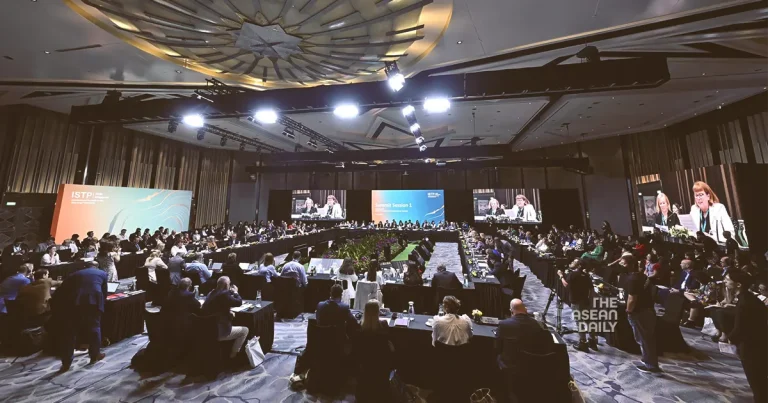24-4-2024 (SINGAPORE) In a resounding affirmation of Singapore’s unwavering commitment to educational equity, a leader of a global federation of teachers’ unions has commended the nation’s approach to ensuring equal access to resources across its schools. This recognition came during the 14th edition of the International Summit on the Teaching Profession (ISTP), a gathering of education leaders focused on enhancing teacher quality and educational standards, hosted by Singapore for the first time.
Dr. David Edwards, the General Secretary of Education International, highlighting the stark contrast between Singapore’s educational landscape and that of other countries, where a child’s birthplace – whether into poverty or a rich or poor neighborhood – often dictates their access to resources in schools.
“There is that equality of funding as a baseline, so there’s no constant worry about whether you are going to have enough teachers or support,” Dr. Edwards remarked, underscoring the nation’s unwavering commitment to providing a level playing field for all students, regardless of their socioeconomic backgrounds.
During his visit to Si Ling Primary School in Woodlands on April 22, Dr. Edwards recounted his initial impression of the school as an elite institution, akin to a high school in Beverly Hills, United States. However, he quickly realized that it was simply a regular neighborhood school, equipped with cutting-edge facilities and resources, including iPads for each pupil to assist with lessons.
“Here, your zip code does not determine your destiny,” Dr. Edwards asserted, echoing the sentiment expressed by Education Minister Chan Chun Sing in his closing speech, where he emphasized that a student’s financial background should not be the determining factor in their educational journey.
Mr. Chan reiterated the government’s commitment to democratizing access to teaching materials and technology, ensuring that every child born in Singapore can dream big and achieve their full potential, regardless of their family’s circumstances.
“Our brand of meritocracy is with Singapore characteristics, which will allow each and every child to go as far as they need,” he stated, underscoring the nation’s unique approach to fostering an inclusive and equitable educational ecosystem.
Beyond equal access to resources, the summit also highlighted Singapore’s embrace of diversity and inclusivity within its educational institutions. Dr. Edwards commended the multicultural respect and diversity he witnessed during his school visits, citing the presence of Hari Raya decorations as an example of the nation’s commitment to promoting inclusiveness.
“You have to have a system that prioritises inclusiveness, you have to have teachers and a school leadership that believe in that, and families and communities that are a part of that, and this bodes well for the future of Singapore,” Dr. Edwards remarked, acknowledging the nation’s holistic approach to fostering an inclusive educational environment.
The ISTP, which ran from April 22 to 24 at Raffles City Convention Centre, brought together 140 delegates from 18 countries, including Estonia, China, and Australia. Participants had the opportunity to visit Singapore’s primary and secondary schools, as well as institutes of higher learning and other training institutes, gaining firsthand insights into the nation’s educational practices.
Yoshiki Takeuchi, the Deputy Secretary-General of the Organisation for Economic Cooperation and Development (OECD), echoed Dr. Edwards’ sentiments, emphasizing the importance of developing 21st-century skills such as curiosity and creativity, in addition to traditional academic subjects like mathematics and reading.
“People want to make sure that no one is left behind,” Mr. Takeuchi noted, recalling his visit to Punggol View Primary School on April 24, where pupils as young as seven were being taught the importance of accepting others.
The ISTP, co-hosted by the OECD and Education International every year since its inception in 2011, has been instrumental in fostering global discussions on strengthening education through a stronger teaching profession. As the summit concluded, educational leaders from around the world shared their insights and commitments, including ensuring adequate student support, prioritizing the well-being of teachers, improving working conditions, and promoting international cooperation and learning from one another’s practices.




